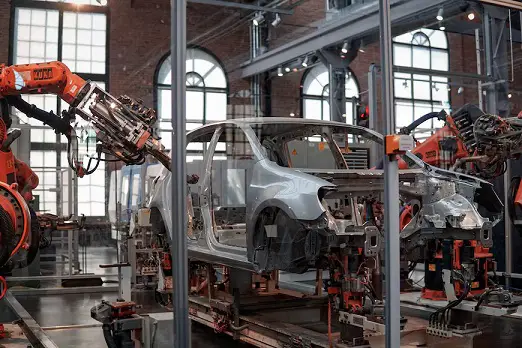The EU is preparing to use subsidies to support European companies which it sees as being at risk of being wiped out by American competition that is supported by US government aid, according to a new report from Politico.
According to two senior UN officials, the concern is arising due to the US Inflation Reduction Act, which offered $369 billion in subsidies to support green industries.
EU officials fear with so much money being given away in the US, EU companies will now feel enormous pressure to move their operations to the US, shifting them out of Europe to take advantage of the subsidies.
Adding to the problem is the skyrocketing costs of energy in the EU, triggered by the war in Ukraine and Russian sanctions, as well as a myriad of technical issues with gas pipelines, including the sabotage of the Nord Stream 1 and Nord Stream 2 gas pipelines. As energy prices increase the cost of everything from chemical synthesis to electricity generation, companies are rapidly finding they cannot compete against foreign companies producing products in regions with vastly lower energy overhead costs. They are being forced to relocate operations out of Europe, to other countries with lower energy costs.
Brussels is currently formulating a plan to funnel cash into key high-tech industries, in hopes of persuading them to remain in Europe. It is being seen as a “European Sovereignty Fund” to both encourage businesses to invest in Europe, and to aid the development of the green technology sector.
EU leaders feel time is of the essence in formulating the plan, as companies are already making key decisions regarding where future manufacturing facilities, for everything from electric cars and batteries, to microchips and wind turbines, will be built.
Officials said there was another reason they feel pressure to act quickly, and that was a fear that unnamed countries would go it alone, and create their own programs.
EU industry chief Thierry Breton warned on Monday that the US Inflation Reduction Act posed an “existential challenge” to the EU economy, noting it was now a matter of vital urgency to “revert the deindustrialization process taking place” because of it.
EU officials note the US package particularly hurts European car-making nations, such as France and Germany, due to provisions within it which encourage US car buyers to buy American when purchasing an electric vehicle.
Given the US package is already a fait accompli, Brussels now is choosing to avoid a trade war by instead, pursuing a subsidy war.

